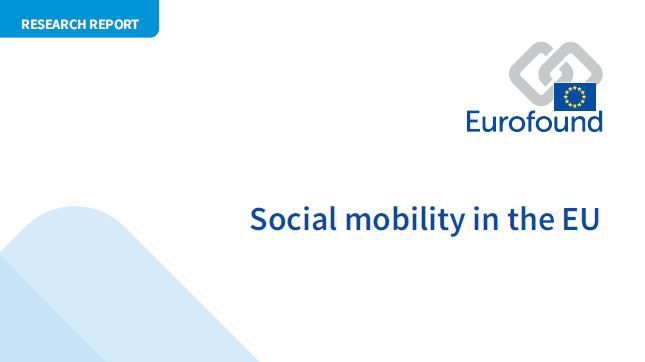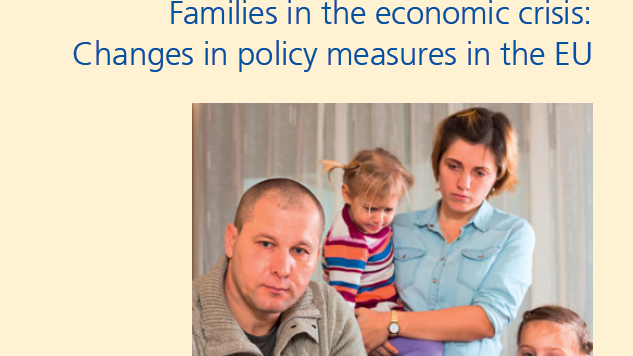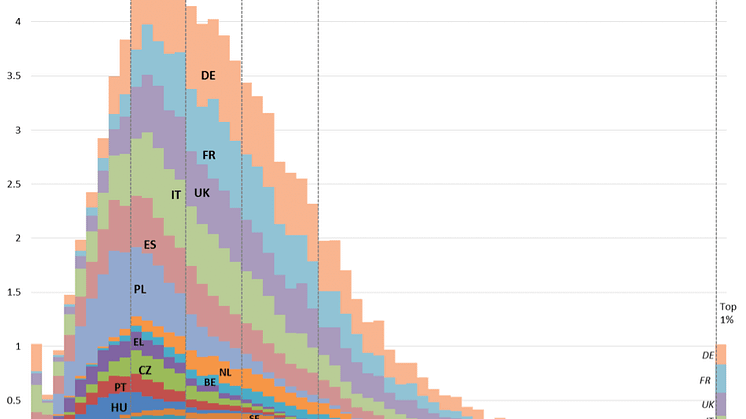
News -
Diverging trends across Europe highlight stagnation and decline in social mobility
Younger Europeans are likely to have fewer opportunities for upward social mobility than preceding generations. Social mobility in Europe seems to have stagnated - at least in some countries - with opportunities for upward social mobility only increasing in a minority of EU countries for all age groups; in some Member States there is even evidence of decline in social mobility. This is according to Eurofound’s new report Social Mobility in the EU, which is the first of its kind to look at the issue throughout the European Union.
The report looks at absolute social mobility - which is the extent of broader occupational change and societal progress - as well as social fluidity, which measures chances of moving between occupational classes. It shows that broad structural changes have enabled upward social mobility across three generations in the later 20th century, and more recently structural shifts have resulted in the extent of absolute social mobility among men and women becoming more similar. However, convergence in social mobility between EU Member States is slowing, and in some cases divergence is becoming apparent.
In terms of social fluidity, only six countries have recorded continuously increasing social mobility across the three generations examined.[1] In Germany, Poland, UK and Ireland social fluidity has remained stable for all age groups, whereas Generation X (1965-1975) has experienced a decrease in social fluidity in Sweden, Austria, France and Bulgaria.
Looking at social fluidity from a gender perspective, the report shows that the prospect of upward mobility among men born after 1964 has significantly deteriorated in many countries, most notably in the UK, France, Sweden, Austria, Estonia and Bulgaria. Social fluidity has changed less for women than for men: it has increased in Belgium, the Netherlands, the UK, the Czech Republic and Finland; and has decreased in Austria, Sweden, Germany and Spain.
This research comes at a time when there is increasing concern that – for the first time in decades – younger generations will experience lower living standards and have fewer opportunities for upward social mobility than preceding generations. The report emphasises an increasing number of social and economic ‘losers’, referring to people from the middle tiers of employment who have moved into lower-tier occupations with less secure and less rewarding prospects. Increased residential and regional segregation, mainly by income or economic situation has become a feature of most urban areas in the majority of Member States. The report also shows that family background continues to be an important influence on prospects for social mobility, and there is some evidence that this aspect is becoming increasingly significant.
The report contains a number of policy recommendations, particularly related to addressing educational disadvantage, creating equal opportunities in access to services, and moderating impact of residential segregation. In particular it calls for recognition of the continued importance of social background in order that policymakers at EU, national and regional levels can implement measures to promote more equal chances for social mobility and break down barriers so that everyone, regardless of where they are from, has the opportunity to fully realise their potential.
Download the publication: Social Mobility in the EU
More info: Joint Eurofound and OECD high-level conference on social mobility and equal opportunities
[1] Belgium, the Netherlands, Denmark, Finland, Slovakia and Greece








